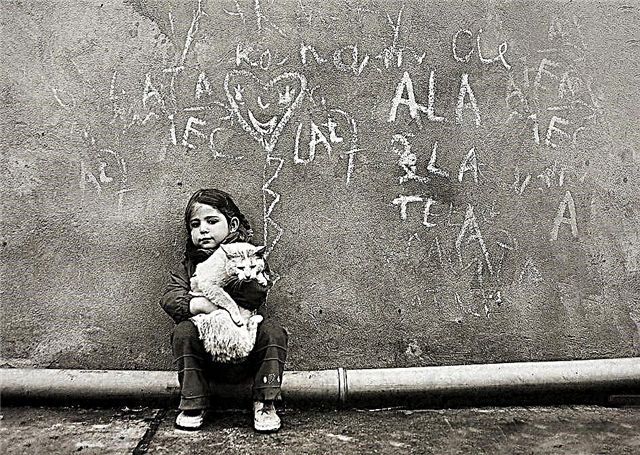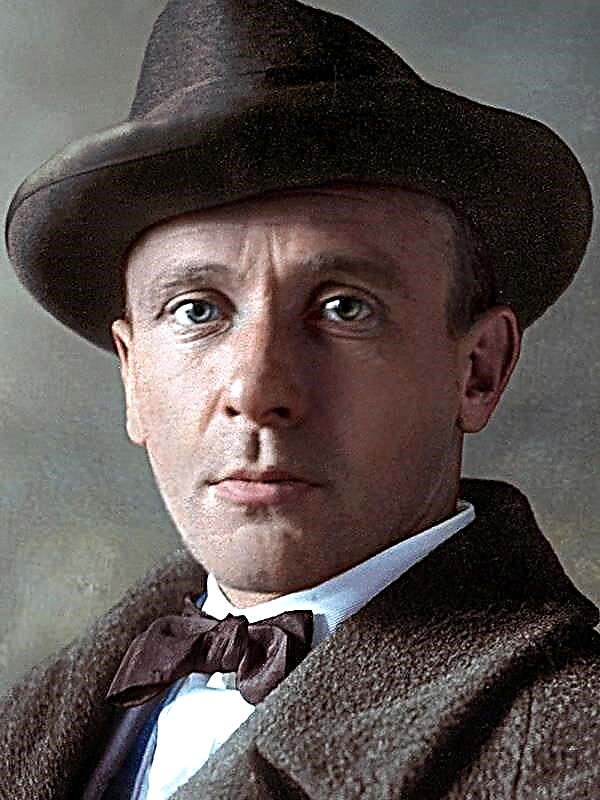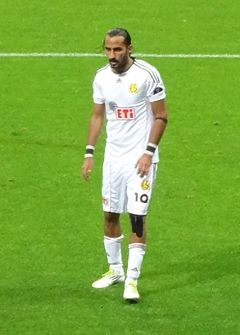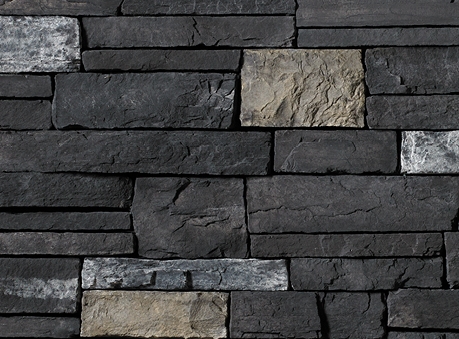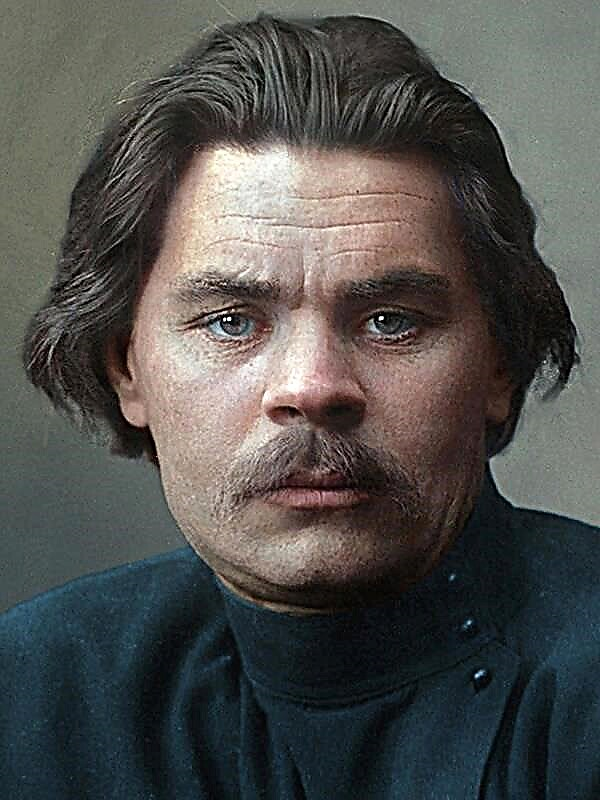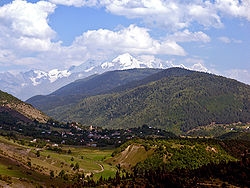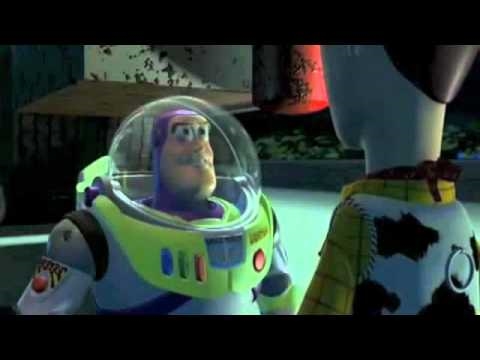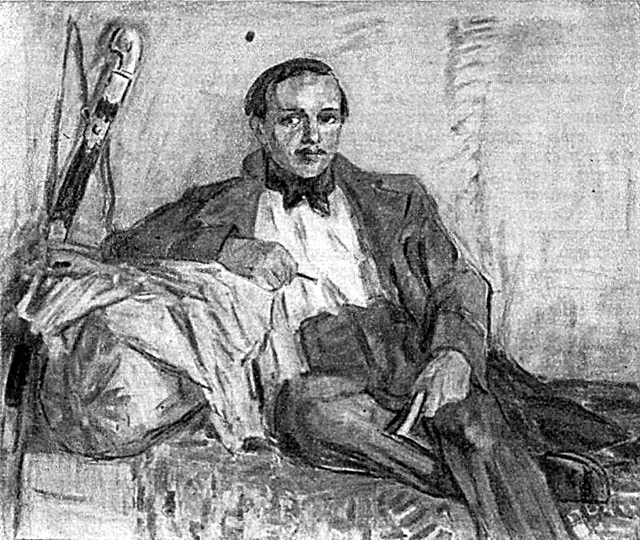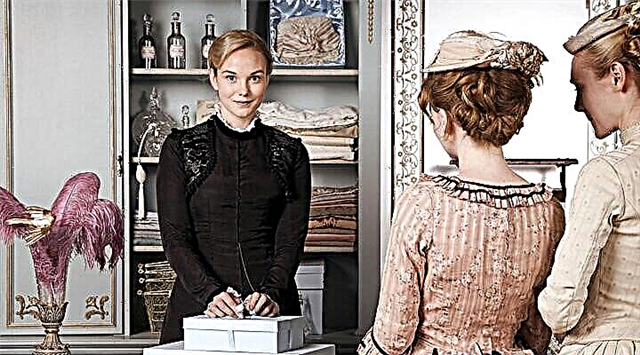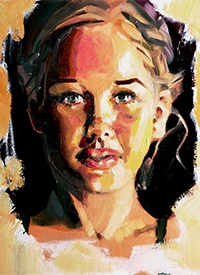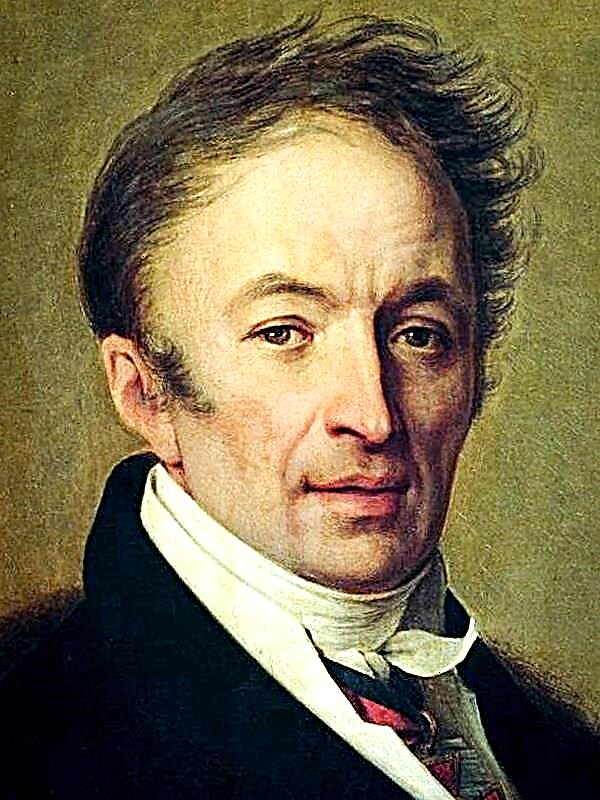: The ancient Greek hero, the son of the supreme god, performs twelve feats in order to free himself from the power of a weak, cowardly relative and gain immortality.
“Hercules” is an excerpt from the chapter “Gods and Heroes” of the collection “Legends and Myths of Ancient Greece”.
Birth and education of Hercules
Hercules and his twin brother were born in Thebes.
Hercules (Alcides) - mythological hero, son of Zeus
It so happened that Hercules was the son of Zeus, and his brother the son of the earthly man Amphitrion.
Zeus - the god of heaven, thunder and lightning, the chief among the Olympian gods
Zeus announced that the boy who was born first that day will become the oldest in the family and a great hero. Jealous Hera did not like it.
Hera - goddess, wife of Zeus, patroness of marriage
She made the weak, sick and cowardly Eurystheus born first. He became the eldest in the family and gained power over Hercules.
Eurystheus is a cousin of Hercules
Then Zeus concluded a contract with Hero: his son will be freed from the power of Eurystheus and will receive immortality, having completed twelve feats. Knowing that his son will have a hard time, Zeus asked his beloved daughter, Athena-Pallas to help the boy.
Athena Pallas - Zeus's beloved daughter, goddess of military strategy and wisdom
Hera, who hated Hercules, sent two huge snakes to strangle him. But an unusually strong baby grabbed the snake by the neck and strangled them.
Gods and heroes became the teachers of Hercules. Once Hercules did not calculate his strength and accidentally killed his music teacher, for which Amphitrion exiled his mouths of the herd in the forests of Kiferon.
Anyone who is hit can strike back.
Hercules in Thebes
Hercules killed the huge Kiferon cannibal lion and began to wear his skin instead of a cloak, and his favorite weapon was a huge wooden club. He defeated the king, whom Thebes paid a huge tribute, married the daughter of the king Thebes Megara, who bore him three sons.
Upon learning that Hercules was happy, Hera sent madness on him, and the hero killed his sons. In punishment for this crime, Hercules had to serve his relative Eurystheus for twelve years.
Hercules in the service of Eurystheus
The cowardly Eurystheus was afraid of Hercules, did not let him into his city of Mycenae, and transmitted orders through the messenger.
Nemean lion (first feat)
The city of Nemea was inhabited by a huge lion. Hercules found his lair with two entrances, heaped one of them with stones, he monitored the beast from the other and tried to shoot from the bow, but the arrows bounced off his skin. Then Hercules stunned the Nemean lion with a club, strangled it and carried it to Eurystheus.
Eurypheus understood how strong Hercules was, and forbade him to approach the gate of Mycenae. Eurystheus now looked at evidence of exploits only from high city walls.
Lernean Hydra (second feat)
Hydra, a monster with a lion body and nine dragon heads, lived in a swamp near the city of Lerna and exterminated the herds of citizens. One of the heads of the Lernean hydra was immortal.
Taking with him the beloved nephew of Iolaus, Hercules went to the swamp, lured the hydra out of her lair, pressed his foot to the ground and began to knock her heads with a club, but two new ones grew up in place of each knocked-down head.
To the aid of the Lernean hydra, a huge cancer crawled out of the swamp and clawed its claws into Heracles leg. Iolaus killed the cancer and began to cauterize the neck of the hydra in place of the cut heads. The heads stopped growing, and Hercules killed the hydra. He buried her immortal head under a huge rock, and coated his arrows with poisonous bile.
Stimphalia birds (third feat)
The inhabitants of Stimphal were attacked by birds with copper claws, beaks and bronze feathers, which the monsters threw like arrows.Hercules climbed a high hill and scared the Stiffallian birds, striking the copper drums that Athena had given him.
The sharp feathers of the birds did not reach the hero, and Hercules shot them from the bow. The remnants of the pack left Greece forever.
Cerineus Doe (fourth feat)
In punishment to the people, Artemis sent a doe with golden horns and copper legs.
Artemis - goddess of hunting, fertility and female chastity
This doe was unusually beautiful, her horns were golden, and her legs were copper.
Hercules chased the Cyrene Kindow deer for a year, finally wounded her with an arrow in her leg and only then managed to catch him alive, as Eurystheus demanded. Artemis was angry that Hercules wounded her beloved doe. The hero explained to the goddess that he had done this on the orders of Eurystheus. The goddess forgave the hero, and he gave Eurystheus a live doe.
Erimanf Boar and the Battle of the Centaurs (fifth feat)
The environs of Mount Erimanfa were devastated by the monstrous power of a boar with huge fangs, which Heracles was to kill. On the way to the mountain, the hero visited the centaur Fall.
Centaur - mythical creature, half-man half-horse
Foul discovered without permission a precious wine that belonged to all centaurs. They attacked Hercules, and then hid from his poisoned arrows in the cave of Chiron.
Chiron - the wisest of centaurs, friend and mentor of Hercules
Hercules accidentally wounded Heron, and he, mortally poisoned, voluntarily went into the dark kingdom of Hades.
Hades - god of the underworld of the dead, brother of Zeus
The saddened Hercules went to Mount Erimanphou, drove the boar into the deep snow on its top, tied it up and carried it alive to Mycenae. Seeing the monster, Eurystheus hid in a large bronze jug.
Barnyard of King Avgius (sixth feat)
King Auggius had huge herds. Hercules declared that he would cleanse the stalls in one day if the king gave him a tenth of his flocks. Augeus agreed, considering this work impossible.
Hercules sent the waters of two rivers to the farmyard, which washed all the manure accumulated there in one day. The hero appeared to Augius for the award, but the king did not pay him.
Freed from the power of Eurystheus, Hercules defeated the forces of Avgius and killed the king with a poisoned arrow. In honor of this victory, the hero instituted the Olympic Games.
Cretan bull (seventh feat)
Poseidon sent the Cretan King Minos a beautiful bull to sacrifice the animal.
Poseidon - god of the seas, brother of Zeus
Minos left the bull to himself, and Poseidon made another sacrifice. An angry god sent rabies to the bull.
A bull ran around the island and destroyed everything in its path.
Hercules tamed the bull and brought him to Mycenae. Eurystheus was afraid to appropriate the bull and let it go. A mad bull rushed north, where the hero Theseus killed him.
Kony Diomedes (eighth feat)
King Diomedes had incredibly strong and beautiful horses. Diomedes kept them on iron chains and fed the meat of strangers who fell into his kingdom.
Having gathered friends, Hercules appeared to Diomedes and took the horses to his ship. The king caught up with the hero and entered into battle with him. Meanwhile, the horses tore apart a friend of Hercules.
Defeating Diomedes, Hercules arranged a magnificent funeral for a friend, and brought Eurystheus his horses. He ordered them to be released, the horses fled into the woods, where they were torn to pieces by wild animals.
Hercules at Admet
Hippolyta's Belt (ninth feat)
The Queen of the Amazons Ippolita had a magic belt - a sign of her power over all Amazons. The daughter of Eurystheus wanted to get this belt.
Gathering a small detachment, Hercules went to the country of the Amazons, winning several battles along the way.
Although the squad of Heracles was small, but many glorious heroes were in this squad ...
Queen Hippolyta herself went out to meet Hercules and was already ready to voluntarily give the belt. Then Hera under the guise of an Amazon convinced the warriors to attack the heroes.
Heroes defeated the Amazons, Hercules captured their main warrior, exchanged her for the belt and drove his daughter Eurystheus.
Hercules saves Hesion, daughter of Laomedont
Gerion Cows (tenth feat)
The giant Gerion had a herd of beautiful cows.
Gerion - a giant with three torso, three heads, six arms and legs, lives at the western edge of the Earth
Crossing the islands where the cows grazed in the golden boat of Helios. Hercules killed the monstrous giant Gerion and drove the cows to Mycenae.
Helios - the all-seeing sun god
On the way, they tried to steal one of the cows, and Hera sent rabies to the whole herd. But Hercules managed, Eurystheus received the cows and sacrificed them to Hera.
Kerber (eleventh feat)
The three-headed dog Kerber guarded the entrance to the underworld.
Kerber (Cerberus) - a three-headed dog with a snake-necked dragon and a dragon head at the tip of the tail, guards the entrance to the underworld of Hades
Passing through the horrors of the kingdom of the dead, Hercules appeared before Hades, who allowed the hero to take Kerber to Mycenae, if he could tame him without weapons.
Finding the dog, Hercules clasped his neck with his hands until the half-strangled Kerber obeyed. Seeing a terrible dog, Eurystheus was horrified and persuaded Heracles to return him to Hades.
Hesperides Apples (Twelfth Feat)
The Atlas titan had a garden in which golden apples ripened.
Atlas (Atlas) - a titan holding a vault on his shoulders
The garden was guarded by the never-sleeping dragon, and the daughters of Atlas, the Hesperides, looked after him. The Hesperides Hercules learned the path to the gardens from the prophetic sea elder.
Hercules had to meet many more on the way of his dangers, until he reached the ends of the earth ...
The Titan willingly went for apples, asking Heracles to hold the vault of heaven instead. Returning, Atlas wished to take the apples to Mycenae himself.
Hercules realized that the titan wants to be free forever from his heavy burden. The hero pretended to agree, and asked Atlas to hold the vault while he made a pillow, which he placed on his shoulders, and carried apples to Eurystheus.
Eurystheus gave the apples to Heracles, he gave them to Athena-Pallas, and the goddess returned the precious fruits to the Hesperids.
After this, Hercules was forever freed from the power of Eurystheus and performed many more new feats. When Hercules died, Zeus took him to Olympus and made him immortal.
Hercle and Euryth
Hebrew, the king of the city of Oykhalia, a skilled shooter and teacher of Heracles, started an archery competition, promising to give his daughter Iola as a wife to the winner. Hercules won the competition and demanded a reward, but Eurythas stated that he would not give his daughter to the slave of Eurystheus and, together with his sons, kicked out the hopped hero. Hercules, who had time to fall in love with Iola, left with bitter anger.
After some time, Eurith was stolen by herds, and he accused Heracles of stealing, believing that the hero avenges his insult. Ifit, the eldest son of Hebrew, did not believe that his friend, the great Hercules, had stolen to theft, and set off to search for herds to prove his innocence.
During the search, Ifit wandered into the fortress of Tiryns, where Heracles lived. Hera sent violent anger to the hero. Hercules recalled the insult inflicted by Eurytis and his sons, and threw Ifit from the high walls of the fortress.
Zeus punished his son with a serious illness for the murder. The suffering Hercules went to Delphi to find out how to get rid of the punishment, and the Pythia announced that the hero would be healed if he sold himself for slavery for three years, and he would give the proceeds to Eurytus as a ransom for his murdered son. The hero became the slave of Queen Omfala, but Eurythus did not take the money and remained the enemy of Heracles.
Hercules and Dejanira
When Eurythus drove away Heracles, he remembered the promise made to the shadow in the kingdom of the dead, and went to ask for the hands of the beautiful Dejanira. The girl had many applicants for the hand, so her father, Oeynay, decided that the husband of Dejanira would be the one who would win in the struggle of Aheloy, one of the suitors.
Aheloy - the mighty river deity, son of Gaia
Hercules went into battle and won, although Aheloy turned into a huge snake, then into a mighty bull. The hero married Dejanir, but soon he inadvertently killed a servant boy and left his wife Oinei and went to Tiryns with his wife.
The road was blocked by a stormy river through which the centaur Ness transported travelers.He was captivated by Dejanira and decided to steal her. Hercules killed the centaur with a poisoned arrow. Ness wanted to avenge himself and told Dejanir that his poisoned blood of the Lernean hydra was a powerful love potion. If Hercules falls in love with Dejanir, she will be able to rub his clothes with blood, and the hero’s love will return to her.
The deceived Dejanira retained a vial of Ness's blood. The couple arrived in Tiryns and lived happily before the murder of Ifit.
Hercules and Omphala
Being in slavery, Hercules suffered from Omfala constant insults. She put on a hero’s dress for women and put him behind a spinning wheel, while she walked in front of him, dressed in his armor and lion's skin.
Omfala released Hercules very rarely from her palace. During one of these absences, the sleeping hero was attacked by dwarf kerkops. Hercules captured the dwarfs, but then lowered, amused by their antics. Then Hercules came to Tsar Siley, who tried to get him to work in the vineyards, as well as other foreigners. An angry hero tore all the vines and killed the king.
During slavery, Hercules took part in the campaign of the Argonauts. But three years passed, and the hero freed himself.
Hercules takes Troy
Hercules did not forget about the insult inflicted upon him by the Trojan king Laomedont. Freed from slavery, he gathered an army and moved to Three. Laomedont, meanwhile, attacked the ships left off the coast and killed the heroes guarding the fleet. Hearing the noise of the battle, Hercules returned, drove Laomedont outside the walls of Troy and besieged the city, and then took it.
Hercules killed Laomedont and his sons, spared only his daughter, and she asked for forgiveness for her younger brother, who became king of Troy. When Hercules returned from under Troy, Hera sent a terrible storm at him, having previously lulled Zeus with the help of Hypnos.
Hypnos - the god of sleep, the son of the goddess of Night
Waking up, Zeus found out that Hera wanted to kill his son, shackled her in golden shackles and hung her between heaven and earth, tying an anvil to each of her legs. He overthrew the gods trying to help Hera from Olympus. But Zeus could not find Hypnos - the goddess Night hid him.
Hercules fights with the gods against the giants
Zeus called on his son to take part in the battle of the gods with giants, monstrous, shaggy giants with snakes instead of legs, the children of Gaia.
Gaia - the goddess of the earth, mother of the titans and giants
The giants decided to take power from the world from the Olympian gods and entered the battle on the Flegreys fields. Gaia protected the giants from the weapons of the gods, only a mortal could kill them.
The battle lasted a long time. The gods weakened the giants with their weapons, and Hercules finished them off with poisoned arrows.
The death of Hercules and his adoption in the host of Olympic gods
While Hercules was in slavery, his wife Dejanir with children was sheltered by the king of the city of Trachina. Soon Dejanira learned that Hercules freed himself and went to avenge Tsar Eurytus, who did not give his daughter Iola to his wife.
Hercules defeated Eurytis and sent Dejanira captive slaves, among whom was Iola. Having learned from the servant that Hercules wants to marry Iola, Dejanira inflamed with jealousy and decided to return her husband's love. She smeared the cloak with the blood of the centaur Ness and sent him to Hercules.
Hercules put on his wife's present and the poison was absorbed into his skin, causing terrible torment to the hero. Upon learning of this, Dejanira committed suicide. To get rid of the pain, Hercules persuaded his son to burn him alive. When the fire broke out, Athena-Pallas and Hermes appeared on the earth and carried Heracles to Olympus. The hero became immortal, and Hera, as a sign of reconciliation, gave his daughter Hebe as his wife.

